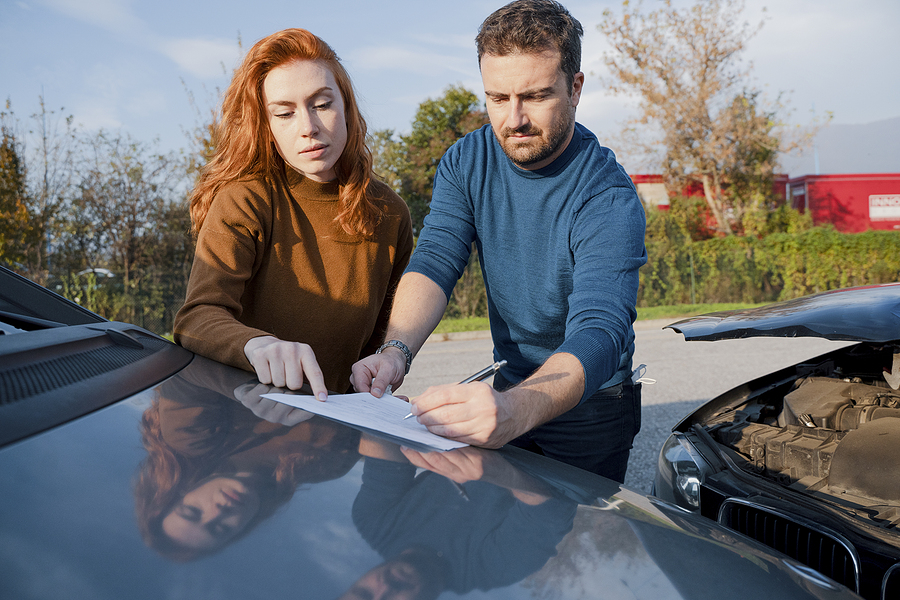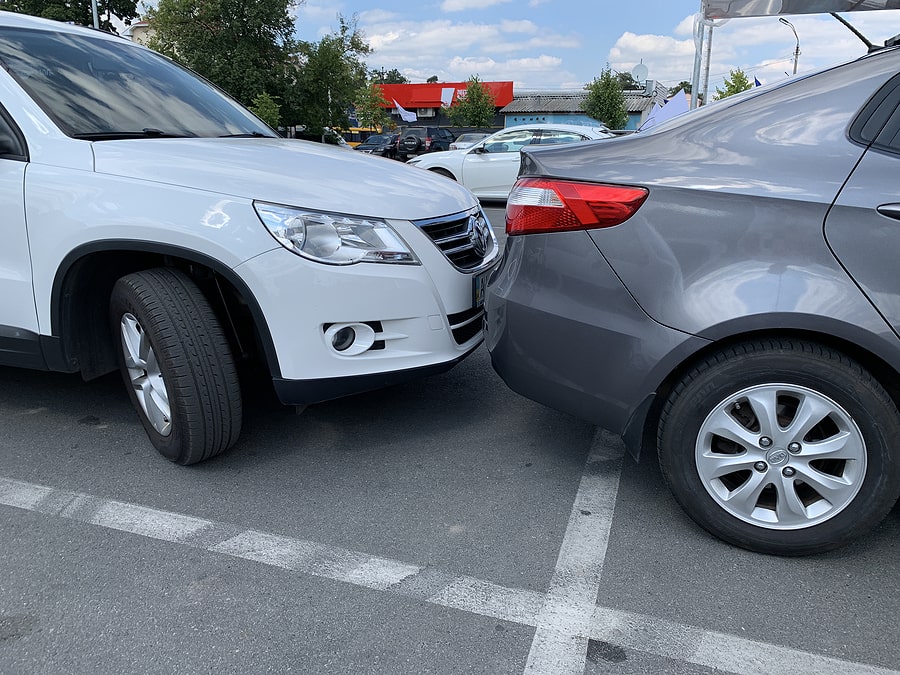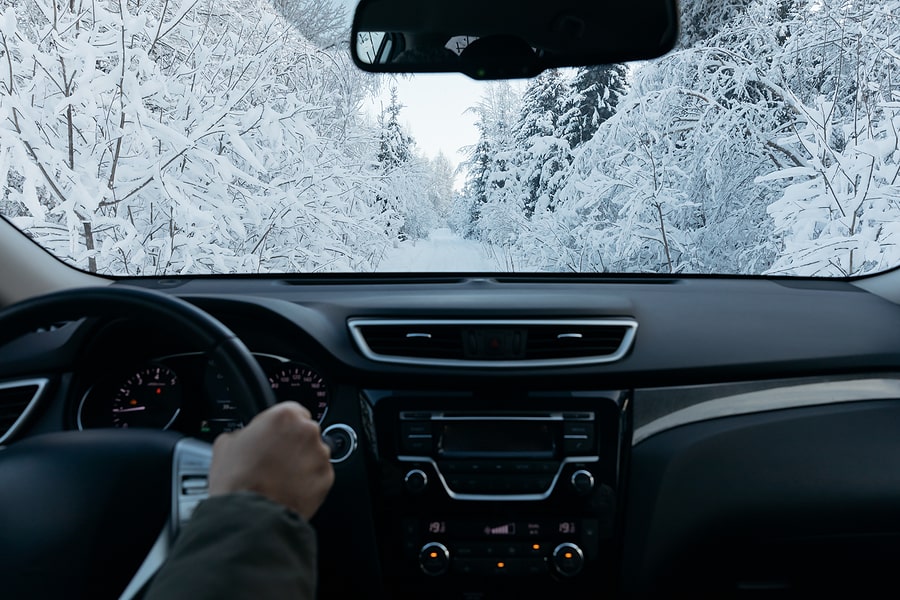When it comes to car accident insurance claims, there are two kinds of states: fault and no-fault. It’s important to understand what kind of state you live in because it will impact how you pursue compensation for injuries after a car crash.
Drivers in some states need to file a claim with their own insurance company after a crash, but in other states, drivers need to file an insurance claim with someone else’s insurance company.
Except in divorce cases—which are really another animal altogether—Texas is not a no-fault state. Texas is an at-fault (or tort) state. This is a traditional legal system framework in which the person responsible for an accident is responsible for paying damages to the other party in a crash.
No-Fault States vs. Fault States
In a no-fault state, injured parties simply file damage claims with their own insurance companies. Nobody needs to prove or determine fault to receive compensation. However, no-fault laws do limit your ability to bring a lawsuit against the party liable for your crash.
Most no-fault states require that drivers own personal injury protection (or PIP) insurance. This is the type of insurance coverage that allows someone to approach their own insurance agency for compensation after an accident. Injured drivers can sue the at-fault party for almost any type of loss after a collision (injuries, emotional distress, lost wages, etc.) Tort insurance is usually cheaper than insurance in no-fault states.
Drivers Who Cause Accidents
In states like Texas, drivers who cause accidents use their insurance to pay for the other injured drivers’ bills after a crash. Fault is determined through the legal process—and that’s one huge reason why you might want to work with a lawyer who can offer guidance after a car accident.
Minimum Insurance Requirements in Texas
In at-fault states, drivers are expected to carry a minimum amount of insurance. This is referred to as the requisite minimum coverage amount.
The amount is often broken down into:
- The coverage amount for each injured person
- The coverage amount per accident
- The coverage amount for property damage per accident
Texas law requires all drivers to have a certain amount of insurance. The current minimum liability limits in the state of Texas are listed as 30/60/25 coverage, which means:
- $30,000 in bodily injury insurance (per person)
- $60,000 per accident
- $25,000 in property damage repairs
Auto insurance helps protect both drivers in the event of a crash. It pays for damages experienced by one driver and it prevents the other from having to pay for damages out of pocket. If you drive without the required amounts of insurance in Texas, you may be subject to fines, penalties, and even license revocation.
What happens if damages exceed the at-fault driver’s insurance amount?
If damages exceed the coverage amount of an at-fault driver’s insurance, injured parties have the right to sue the at-fault driver to collect the difference.
What if the At-Fault Driver is Uninsured?
What happens when an at-fault driver doesn’t have insurance in Texas? Luckily, if you have uninsured or underinsured motor insurance (UM/UIM insurance), an attorney can help you file a claim with your own insurance company. UM and UIM coverage are available as additional coverage options on auto insurance policies.
Types of Auto Insurance in Texas: An Overview
It can be a little difficult to understand how different types of car insurance in Texas work. Fortunately, policyholders have some options when it comes to how much insurance coverage they want.
To review, here’s a refresher on each type of auto insurance.
- Liability coverage: Accounts for medical expenses, lost wages, pain and suffering, property damage, and wrongful death.
- Collision coverage: Covers damages to your vehicle; you’ll be compensated for (a) the full amount of your car, (b) the cost it would take to repair your car, or (c) the amount designated on the insurance declaration page—whichever is least.
- Comprehensive coverage: Accounts for damages to your car from incidents other than a collision (i.e. weather damage or vandalism.)
- Uninsured/underinsured motorist coverage: Covers vehicle damage caused by someone who had no insurance.
Some Insurance Companies Try to Avoid Paying Fairly
It’s very common for insurance agencies to attempt to evade paying car accident survivors fairly for their experiences. Many of these companies use bad faith tactics to prevent you from receiving the compensation that you deserve.
Some examples of these include:
- Denying claims without offering a reason
- Undervaluing a claim on purpose
- Failing to communicate promptly
- Taking a very long time to resolve a claim
- Failing to properly investigate a claim
Car Accidents: Proving Fault
Remember how we said that you can retain an attorney to help prove fault after an accident? Here’s where that comes into play. Lawyers have extensive experience investigating cases and working to prove fault. An attorney can help you establish evidence of negligence regardless of whether you’re trying to settle with an insurance company or filing a lawsuit.
Evidence That Can Prove Fault
There’s lots of different evidence that can be used to prove fault in a case. If you were hurt in a car accident, you may prove who was responsible for your crash with evidence such as:
- Pictures and videos of the accident
- Pictures and videos of damage caused by the accident (injuries, property damage, etc.)
- Witness testimonies
- Expert opinions (i.e. auto industry experts)
- Police reports
- Cell phone records
- Crash reconstructions from specialists
What Damages Can I Recover After a Car Accident in Texas?
When you work with a lawyer after your car accident, they can help you pursue damages, but the compensation you seek depends entirely on your experience during and after the accident. Some examples of very commonly sought damages include:
- Medical bills: Past, present, and future medical bills associated with the accident
- Lost wages: For time missed from work from the accident
- Diminished earning capacity: If someone is permanently unable to earn as much money as they did before their accident (if they are forced to change careers, for example)
- Pain and suffering
- Mental anguish
- Loss of enjoyment of life
- Property damage
Steps You Should Take if You Are in a Car Accident
Stay at the Accident Scene
First and foremost, we want to mention that you should not leave the scene of a car accident. In some cases, this is considered a crime.
You can only be sure it’s safe to leave after a car accident if:
- You filed an accident report with the police
- Everyone involved in the crash has received appropriate medical care
- You’ve swapped driver information with any other drivers involved in your accident
Ensure Your Own Safety
If you feel extreme pain in your head, neck, or back, you should not move after an accident. Stay still and wait for help.
If you can move following a crash, you should ensure that you get out of harm’s way. Don’t stay near traffic or your vehicle if it’s not safe to do so.
Ensure Everyone Else’s Safety
You should give everyone else involved in the accident the same care you gave yourself. Check to make sure that anyone else in the crash is unharmed—and, if they’re hurt, move them to somewhere safe to wait for medical help.
Call 911 (or a Local Non-Emergency Number)
If your crash didn’t cause any injuries and it was very minor, some areas have signs that list the local non-emergency number for non-emergency accidents. In general, though, it’s a good idea to just call 911 after a car accident. You’ll be connected with an operator who can assess your needs and send out the right parties to respond to the crash. The police may come to take a report and help clean up the scene; medical first responders are often called for crashes, too.
Take Photos and Videos
Document the scene of the car accident. Take photos and videos of injuries, property damage, and the accident scene itself after everything has calmed down. Often, there will be evidence nearby the crash site that many people don’t even notice. For example, be on the lookout for skid marks in the road or damage to nearby structures.
Swap Information With Other Drivers
Provided everyone is safe, it’s a very good idea to swap information with other drivers involved in the accident. This includes:
- Name
- Insurance information
- Driver’s license information
- License plate number
- Car make and model
You will need this information to file a claim or to begin work on a case with an attorney. Don’t panic if you can’t collect driver info—it happens all the time—but make an effort to grab it if you can.
Collect Witness Information
Unfortunately, you can’t always trust the police to collect information from witnesses after an accident. This is especially true if the injuries caused by an accident don’t seem life-threatening. However, witness testimony can still play a critical part in a case, and it’s important to have contact information for witnesses. We recommend collecting contact information from witnesses at the scene of your crash if you can. It can benefit you later.
Seek Medical Attention
It’s very important to seek medical attention after a car accident. Depending on the accident and your injuries, you may receive medical attention at the scene, or you may even be transferred to a hospital for emergency care.
Regardless of how much time you’ve spent in the hospital (or even if you haven’t been at all), it’s important to set up an appointment with your doctor. Your doctor may examine you for delayed signs of injury and they can answer your questions about the healing process. It’s also important for your doctor to be kept up-to-date on your physical health, so a visit after an accident is crucial.
Find a Reputable Car Accident Lawyer
You don’t have to work with a lawyer after a car accident, but it can benefit you tremendously. We always recommend that accident survivors at least take advantage of the free consultations most accident attorneys offer. You don’t need to pay a dime to find out more about your potential case and ask questions about your rights. There’s nothing to lose, and everything to gain!
We recommend:
- Finding a lawyer with lots of experience litigating car accident cases
- Finding a lawyer who has spent time in court, just in case that’s where your case leads you
- Finding a lawyer with local experience and thorough knowledge of your state’s regulations
Remember: You don’t have to hire a lawyer just because you talked to them. You are free to attend several consultations and then choose the attorney that’s best for your individual case and needs.
Can I Handle a Car Accident Case Without a Lawyer?
Not if you want the best result. While plenty of people in Texas do handle their car accident cases without a lawyer’s help, we advise partnering with an attorney, because insurance companies are eager to take advantage of crash survivors who don’t have legal counsel. You will have a much more difficult time obtaining fair, or any, compensation if you’re on your own.
If you or a loved one have been hurt in a car accident that was not your fault, a qualified car accident attorney may help. Car accident lawyers have extensive experience helping clients with a wide range of cases, so no matter your circumstances, you can look to an attorney for advice.





